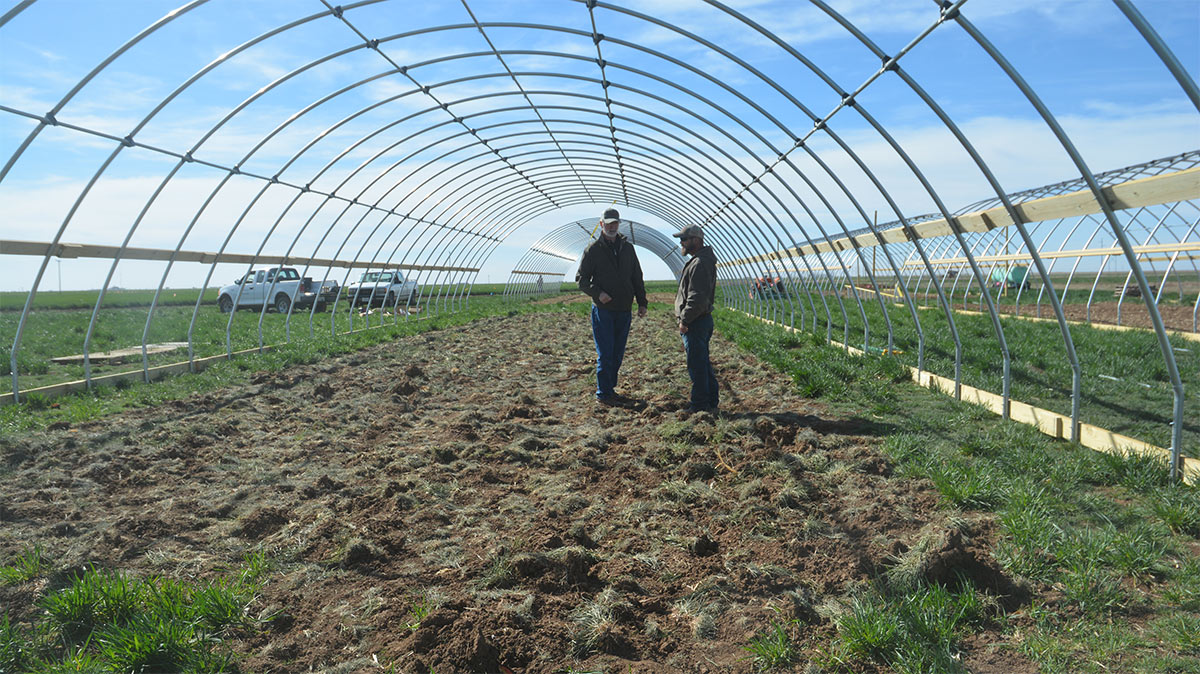
AMARILLO – When planting season comes around this summer, Dr. Charlie Rush, Texas A&M AgriLife Research plant pathologist in Amarillo, won’t be planting traditional crops or in traditional fields.
Rush is beginning a new project looking at high-value vegetable crop production under high tunnels, particularly tomatoes this year. High tunnels are Quonset hut-type structures similar to greenhouses in appearance but lacking artificial heat.
As water concerns continue to rise, the potential for making more money with the available water is really good, he said, so that’s one of the reasons to look at this new production system with high tunnels and high-value vegetable crops.
“One of the reasons we’re doing this research is because the Ogallala Aquifer is certainly limited and in most cases the water level is dropping,” Rush said. “In areas south of Amarillo particularly, the water availability is becoming scarcer every year.”
Rush is beginning a new project looking at high-value vegetable crop production under high tunnels, particularly tomatoes this year. High tunnels are Quonset hut-type structures similar to greenhouses in appearance but lacking artificial heat.
As water concerns continue to rise, the potential for making more money with the available water is really good, he said, so that’s one of the reasons to look at this new production system with high tunnels and high-value vegetable crops.
“One of the reasons we’re doing this research is because the Ogallala Aquifer is certainly limited and in most cases the water level is dropping,” Rush said. “In areas south of Amarillo particularly, the water availability is becoming scarcer every year.”
Continue reading on AgriLife Today
Article originally published by Texas A&M University
More research from Texas A&M University